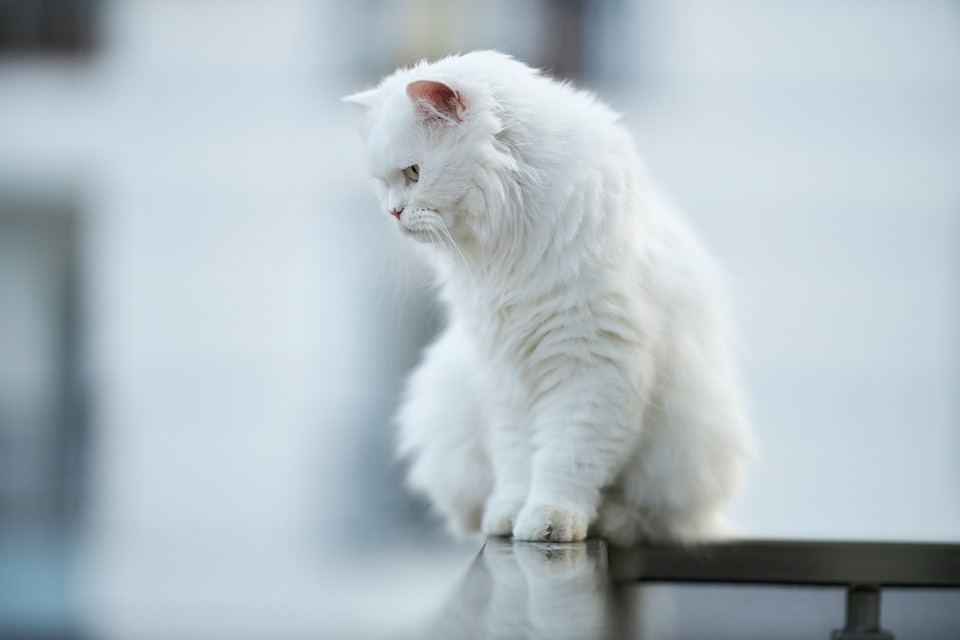**Title: Recognizing and Addressing Signs of Upper Respiratory Infections in Kittens**
**Introduction:**
Upper respiratory infections (URIs) are common among kittens and can cause discomfort and potential complications if left untreated. As a responsible cat owner, it’s crucial to be able to recognize the signs of URIs and take appropriate steps to address them promptly. This article aims to provide you with valuable insights on identifying and managing respiratory infections in kittens, as well as answering frequently asked questions to help you better understand this condition.
**I. Understanding Upper Respiratory Infections in Kittens**
A. What is an upper respiratory infection?
An upper respiratory infection is an infection that affects the nose, throat, and sinus areas of the respiratory system. In kittens, these infections are often caused by viral or bacterial pathogens.
B. Causes of URIs in kittens
URIs in kittens are commonly caused by feline herpesvirus, feline calicivirus, and feline chlamydia. These pathogens are highly contagious and can be spread through direct contact or respiratory droplets.
C. Factors that increase susceptibility to URIs
Factors such as stress, overcrowding, poor ventilation, and a weakened immune system can increase a kitten’s susceptibility to URIs. Kittens from shelters or multi-cat households are particularly at risk.
**II. Recognizing Signs of Upper Respiratory Infections**
A. Sneezing and nasal discharge
Frequent sneezing and clear or colored nasal discharge are common signs of a URI in kittens. Discharge may be watery or thick and may be accompanied by congestion.
B. Watery or irritated eyes
Kittens with URIs often have watery or irritated eyes. They may appear red, swollen, or have discharge. In severe cases, the eyes may become crusted shut.
C. Coughing and wheezing
Coughing and wheezing can be signs of a lower respiratory infection, which can occur as a complication of a URI in kittens. These symptoms should be taken seriously and evaluated by a veterinarian.
D. Congestion and difficulty breathing
Kittens with URIs may experience congestion and difficulty breathing. They may breathe with an open mouth or have noisy breathing due to nasal congestion.
E. Loss of appetite and weight loss
URI symptoms can cause a loss of appetite in kittens. If left untreated, this can lead to weight loss and potentially more severe health issues.
F. Lethargy and reduced playfulness
Kittens with URIs may become lethargic and show a reduced interest in playing or interacting with their environment. This is a common sign of illness in cats.
**III. Addressing Upper Respiratory Infections in Kittens**
A. Consult a veterinarian
If you suspect your kitten has a URI, it’s essential to consult a veterinarian for a proper diagnosis and treatment plan. They may prescribe antibiotics, antiviral medications, or other supportive care.
B. Creating a comfortable environment
Provide a warm and comfortable environment for your sick kitten. Ensure they have access to clean bedding and a quiet space to rest and recover.
C. Promoting hydration and nutrition
Encourage your kitten to drink plenty of water and offer wet food to help maintain hydration and support their immune system. If necessary, your veterinarian may recommend additional nutritional supplements.
D. Administering prescribed medications
Follow your veterinarian’s instructions for administering any prescribed medications, such as antibiotics or eye drops. Be consistent and complete the full course of treatment.
E. Isolating infected kittens
To prevent the spread of infection, isolate infected kittens from other cats in the household until they have fully recovered. This will help protect the health of other animals and prevent further transmission.
**IV. Frequently Asked Questions (FAQs)**
1. How long do upper respiratory infections last in kittens?
The duration of URIs in kittens can vary but generally lasts around 1-2 weeks. Severe cases or complications may require longer treatment.
2. Can I vaccinate my kitten against URIs?
There are vaccines available for some of the pathogens that cause URIs in kittens, such as feline herpesvirus and feline calicivirus. Consult with your veterinarian to determine the appropriate vaccination schedule for your kitten.
3. Can humans catch upper respiratory infections from kittens?
Most URIs in kittens are not zoonotic, meaning they cannot be transmitted to humans. However, it’s always important to practice good hygiene when handling sick animals.
4. Are there any home remedies to treat URIs in kittens?
It’s best to consult a veterinarian for proper treatment of URIs in kittens. Home remedies may not be effective and can potentially worsen the condition.
5. Can URIs be prevented in multi-cat households?
Preventing URIs in multi-cat households can be challenging due to the high risk of transmission. Vaccination, regular veterinary check-ups, and hygiene practices can help reduce the risk.
6. When should I be concerned about my kitten’s respiratory symptoms?
If your kitten is experiencing severe difficulty breathing, persistent coughing, or shows signs of dehydration or lethargy, it’s crucial to seek veterinary attention immediately.
7. Should I quarantine my sick kitten from other healthy cats?
Yes, it’s important to isolate sick kittens to prevent the spread of infection to other cats in the household. Consult with your veterinarian for guidance on the appropriate quarantine period.
8. How can I help boost my kitten’s immune system to prevent URIs?
Providing a balanced diet, regular exercise, and reducing stress can help support your kitten’s immune system. Consult with your veterinarian for additional recommendations.
**Conclusion:**
Upper respiratory infections can significantly impact a kitten’s overall health and well-being. By promptly recognizing the signs of URIs and taking appropriate action, such as consulting a veterinarian and providing necessary care, you can help your kitten recover and prevent the spread of infections. Remember, early intervention and supportive care are key to ensuring your kitten’s optimal respiratory health.








